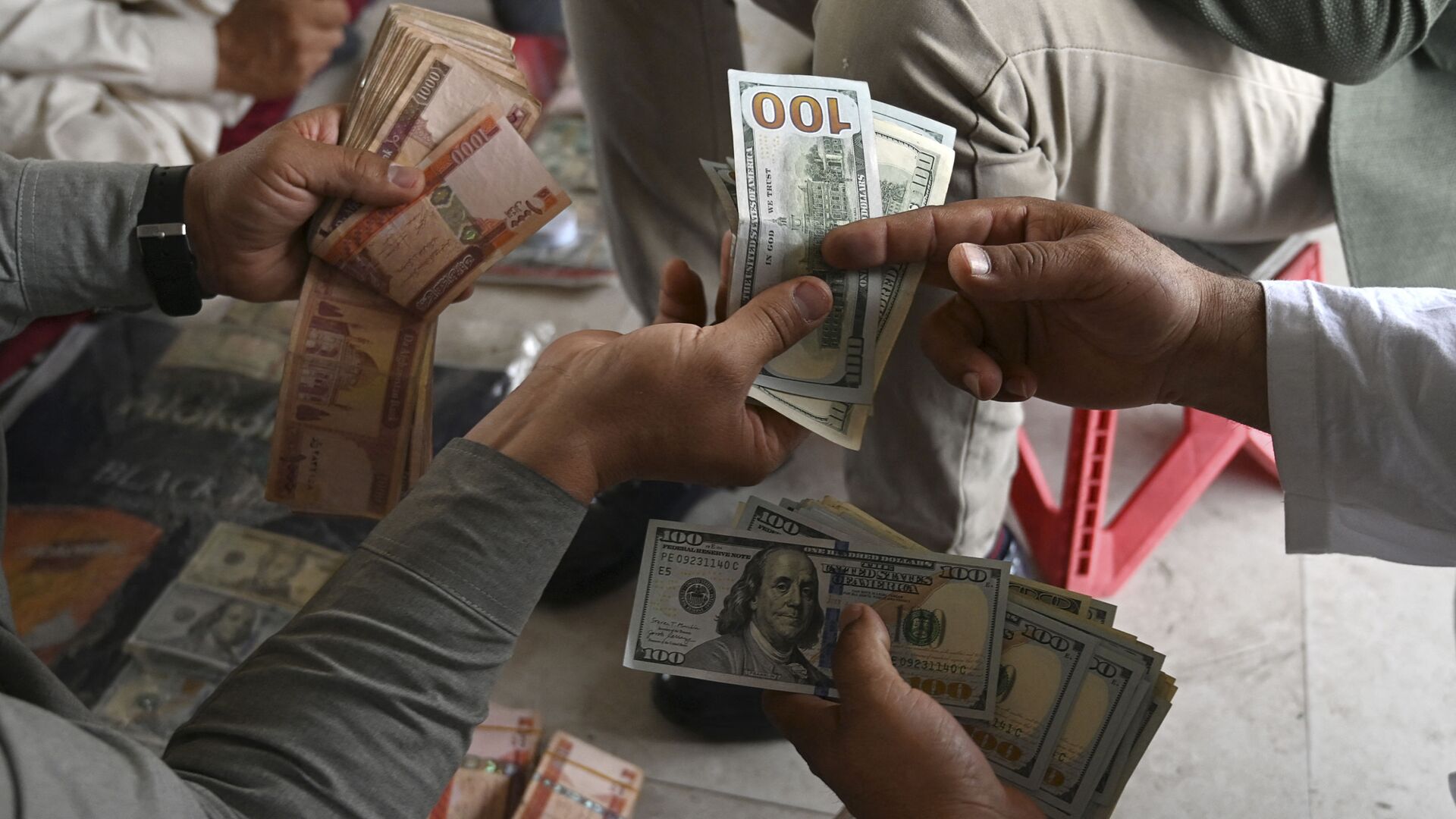US' Decision to Freeze Kabul's Assets Will Lead to Inflation, Hurt Poor, Afghan Central Bank Warns

© AFP 2023 / WAKIL KOHSAR
Subscribe
The Asian Development Bank (ADB) reported in 2020 that 47.3 percent of Afghanistan’s 39 million people lived below the national poverty line, with more than 30 percent of the employed population having purchasing power parity (PPP) of less than $1.90 a day.
The US Treasury's decision to freeze nearly $10 billion of Da Afghan Bank’s (DAB) assets could lead to inflation and rising food prices in Afghanistan as dollars become scarce, an advisor to former Afghanistan President Ashraf Ghani warned on Wednesday.
Therefore, my base case would be the following:
— Ajmal Ahmady (@aahmady) August 18, 2021
- Treasury freezes assets
- Taliban have to implement capital controls and limit dollar access
- Currency will depreciate
- Inflation will rise as currency pass through is very high
- This will hurt the poor as food prices increase
Ajmal Ahmady, the governor of DAB (Afghanistan’s central bank), explained in a series of tweets that Afghanistan relied on regular shipments of dollars to keep its economy afloat by ensuring steady currency circulation. The central banker revealed that the dollar shipment scheduled for Saturday, 14 August, when Ghani was still in Kabul, didn't arrive, before the US decided to freeze the country's assets altogether, fearing that the Taliban* might access the funds.
Ahmady reckons that the US halted its dollar shipment to Kabul as it probably foresaw the Taliban taking over the Afghan capital the next day - 15 August. He noted that Ghani had telephoned US Secretary of State Antony Blinken days before and requested that Washington honour its commitment to transport the funds to Kabul, to which the top American diplomat agreed.
Bloomberg reported on Tuesday that the US Treasury Department had frozen the nearly $10 billion in liquid and other reserves kept at the New York-based Federal Reserve Bank and other US-located global financial institutions.
As an immediate fallout of the Joe Biden administration’s decision, the Afghani (local currency) “depreciated from 81 to almost 100 and then back to 86”, Ahmady said.
“Given Afghanistan’s large current account deficit, DAB was reliant on obtaining physical shipments of cash every few weeks. The amount of such cash remaining is close to zero due a stoppage of shipments as the security situation deteriorated, especially during the last few days,” claimed the federal official, adding that he also had to turn depositors who wanted to withdraw their dollars away due to shortage of currency.
As per Kabul’s Central Bank, the Federal Reserve Bank holds nearly $7 billion of the overall foreign reserves, including $3.1 billion in US bills and bonds, gold and cash accounts. Nearly $700 million of DAB’s funds are held in the Switzerland-based Bank of International Settlements (BIS), which is known as the banker for the world’s central banks. The balance of Afghanistan’s international reserves are held in other bank accounts.
Ahmady claims that only 0.2 to 0.3 percent of Afghanistan’s reserves will be available for use by the Taliban, further warning that US Treasury sanctions will also prevent any international donor from assisting the insurgent outfit.
The US Treasury in 1999 listed the Taliban in its Office of Foreign Assets Control’s (OFAC) list of “Specially Designated Nationals and Blocked Persons” (“the SDN List”) for sheltering terrorist outfits.
The presidential advisor said that he was being forced to take to Twitter to issue the multiple-tweet clarification as the Taliban fighters had been paying visits to the central bank’s office and enquiring about the location of sovereign funds.
“I am writing this because I have been told that the Taliban are asking DAB staff about the location of assets. If this is true - it is clear they urgently need to add an economist on their team,” Ahmady stated.
*Banned in Russia

